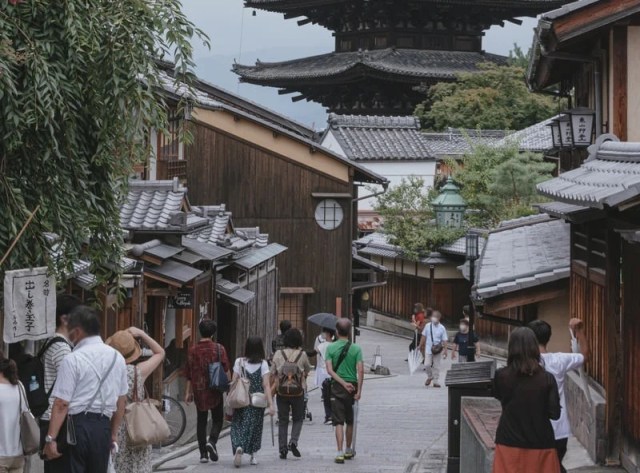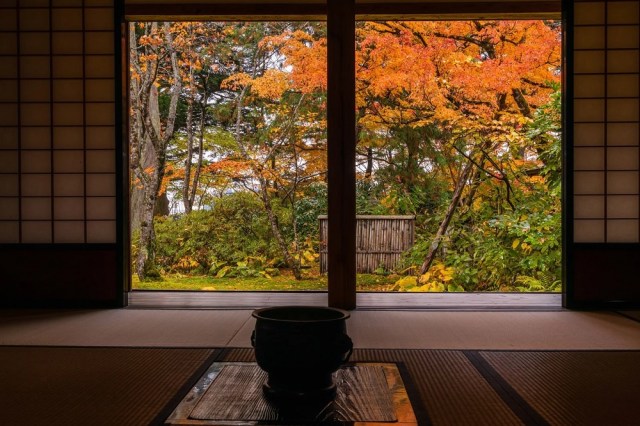Kyoto reportedly planning to raise hotel guest taxes, create highest accommodation tax in Japan

Top tier would charge 10,000 yen per person per night.
Though it’s always been one of Japan’s most popular travel destinations, the city of Kyoto is currently experiencing an unprecedented surge in tourists, resulting from a combination of pent-up demand from when Japan was closed to international travel during the pandemic and the historically low value of the yen now making the country a bargain for those coming from overseas. However, Kyoto is likely going to become somewhat less of a bargain under a reported plan to raise the city’s accommodation tax for hotel guests up to as much as 10,000 yen (US$64) per person per night.
Since October of 2018, Kyoto has had a three-tiered tax for guests at hotels (including ryokan/traditional inns) within the city. If your room was priced below 20,000 yen a night, each person in your party was charged 200 yen per night for the tax. If your room was between 20,000 and 49,999 yen, that went up to 500 yen, and if your room was 50,000 yen or more, the tax topped out at 1,000 yen.
According to a report by newspaper Yomiuri Shimbun, though, citing policymakers involved in the process, Kyoto will be restructuring its accommodation tax framework and introducing a new, five-tiered system. The cheapest tax level of 200 yen will remain, but will only apply for rooms costing less than 6,000 yen a night. The next three tiers are currently unclear, but at the very top the city would levy a tax of 10,000 yen per person, per night staying in the city.
This highest tax would apply to hotel rooms costing 100,000 yen (US$637) or more a night, so it’s clearly targeting luxury travelers. However, 10,000 yen would be the highest flat-rate accommodation tax charged by any city in Japan, representing a potential rate of 10 percent per person in the party, so those traveling with a romantic partner, friends, or family members could see their hotel costs go up by 20, 30, or 40 percent, if not more.

The revised structure doesn’t bode particularly well for lower-rolling travelers either. Dropping the cutoff for the lowest tax from 20,000 yen all the way down to 6,000, and expanding the number of tiers from three to five, suggests that higher taxes would most likely result for any hotel room costing more than 6,000 yen, and with prices in Kyoto these days, it’s tough to find much that’s not a dormitory, capsule hotel, or hostel for such a low price.
The plan for higher accommodation taxes comes as Kyoto is reexamining how to balance its reputation as providing the finest levels of hospitality in Japan with overtourism issues such as increased litter levels and locals feeling like they’re being crowded out of the local public transportation network, problems which, ostensibly, the money from a higher accommodation tax would go towards addressing. Among the campaign promises Kyoto mayor Koji Matsui made before being voted into office last February was a pledge to raise the accommodation tax. At the same time, it’s worth noting that accommodation taxes collected in Kyoto during the 2023 fiscal year (which ended in the spring of 2024) totaled 5.2 billion yen, the highest single-year amount in history for the city, though admittedly without knowing what projects that revenue is going to be used for, it’s hard to decisively say whether or not it’s enough.
Yomiuri Shimbun’s sources expect the revised accommodation tax system to be formally submitted to the city council in February, and if approved to go into effect in 2026.
Source: Yomiuri Shimbun
Top image: Pakutaso
Insert image: Pakutaso
● Want to hear about SoraNews24’s latest articles as soon as they’re published? Follow us on Facebook and Twitter!
Credit:

0 comments: